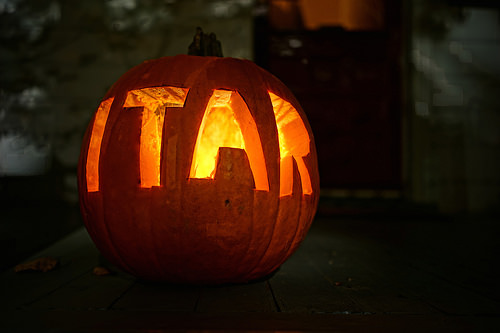![Happy 50th by Cochise College via Cochise College official Instagram account http://instagram.com/p/tTViN5IHPh/ [Fair Use] Happy 50th by Cochise College via Cochise College official Instagram account http://instagram.com/p/tTViN5IHPh/ [Fair Use]](https://www.exportlawblog.com/images/cochise.jpg) Let’s see. I have an export question that’s troubling me. So what should I do? I know. Let’s write the local newspaper and ask them! What could possibly go wrong?
Let’s see. I have an export question that’s troubling me. So what should I do? I know. Let’s write the local newspaper and ask them! What could possibly go wrong?
Dear M & M: I am interested in exporting a product overseas. This product does not require an export license. I am not sure who the end user will be as they are selling to a third party. Is there something I need to do to make sure I am in compliance with regulations?
— Randy
The “answer” comes from Mark Schmitt, director of the Small Business Development Center at Cochise College; and Mignonne Hollis, executive director at the Sierra Vista Economic Development Foundation. (Please, no Mork and Mindy jokes.) Mark and Mignonne do not even stop for a moment to wonder how Randy, who appears to know almost nothing about exporting, is so certain his item does not require an export license and respond:
Dear Randy: If your item falls under the jurisdiction of the U.S. Department of Commerce and is not listed on the Commercial Control Lists, and it does not require an export license it is designated as EAR99.
Generally the majority of commercial products are designated EAR99 and generally will not require a special license to be exported or imported into this country and later re-exported.
Leaving aside the “Commercial Control Lists” gaffe, the first sentence makes almost no sense to me, and one can imagine what sense it makes to Randy. How is Randy supposed to figure out whether his item “falls under the jurisdiction of the” Commerce Department? And if I have an ECCN that doesn’t require a license to a particular jurisdiction does that make my item EAR99? But forget about all that: most products, they say, are EAR99, so Mark and Mignonne are certain that Randy’s item must be as well. Good thing they didn’t print Randy’s last name.
However, if you plan to export an EAR99 item to an embargoed or sanctioned country, to a party of concern, or in support of a prohibited end-use, you may be required to obtain a license. The Bureau of Industry and Security (BIS) have what they call advisory opinions relating to what they call red flags when exporting to another country. The following link has general topics one should check out if you suspect something is wrong http://www.bis.doc.gov/index.php/policy-guidance/advisory-opinions.
If Mark and Mignonne were teetering off balance in the first two paragraphs, they have gone completely off the rails here. Who knew that the advisory opinions talked about red flags or would help Randy realize that not knowing the end customer might get him in hot water without further investigation and/or contractual undertakings by the intermediate consignee?
Not knowing the end user especially if your product can be refitted to serve another purpose or knowingly suspect a third party reselling your items to a country that the U.S. has sanctioned can get you into trouble.
Of course, not knowing the end user can be a problem whether or not your product can be refitted. And if you know that your intermediate consignee is selling to a sanctioned country, knowing your end user is not going to help at all.
Finally, Mark and Mignonne  say to Randy what they should have said from the outset, indeed, what should have been the only thing they said to Randy
The Export Counselling Division of the Office of Exporter Services can be reached at any of the numbers below …
Next week Mark and Mignonne attempt to explain to a confused reader why string theory is a possible explanation for the commutation rules of quantum mechanics. Stay tuned.

 Posted by
Posted by  Category:
Category: 

![Air France 747-428 by Aero Icarus [CC-BY-SA-2.0 (http://creativecommons.org/licenses/by-sa/2.0)], via Flickr https://www.flickr.com/photos/aero_icarus/5939459613 Air France 747-428 by Aero Icarus [CC-BY-SA-2.0 (http://creativecommons.org/licenses/by-sa/2.0)], via Flickr https://www.flickr.com/photos/aero_icarus/5939459613](https://www.exportlawblog.com/images/air_france.jpg) Today the Office of Foreign Assets Control
Today the Office of Foreign Assets Control 
![Bupa booth via http://www.bupa.com/media/704558/bupa-corp-brochure_hires_singles.pdf [Fair Use] Bupa booth via http://www.bupa.com/media/704558/bupa-corp-brochure_hires_singles.pdf [Fair Use]](https://www.exportlawblog.com/images/bupa.jpg) Global health care consortium Bupa
Global health care consortium Bupa ![Midamar Halal Pizza via http://www.midamarhalal.com/Product/Pizza/Halal-Pizza/166/Halal-Beef-Pepperoni-Pizza-12in-bake-Rise.aspx [Fair Use] Midamar Halal Pizza via http://www.midamarhalal.com/Product/Pizza/Halal-Pizza/166/Halal-Beef-Pepperoni-Pizza-12in-bake-Rise.aspx [Fair Use]](https://www.exportlawblog.com/images/midamar_pizza.jpg) Who knew that the Islamic Religious Police had an office at Main Justice? You might justifiably wonder that reading
Who knew that the Islamic Religious Police had an office at Main Justice? You might justifiably wonder that reading 

